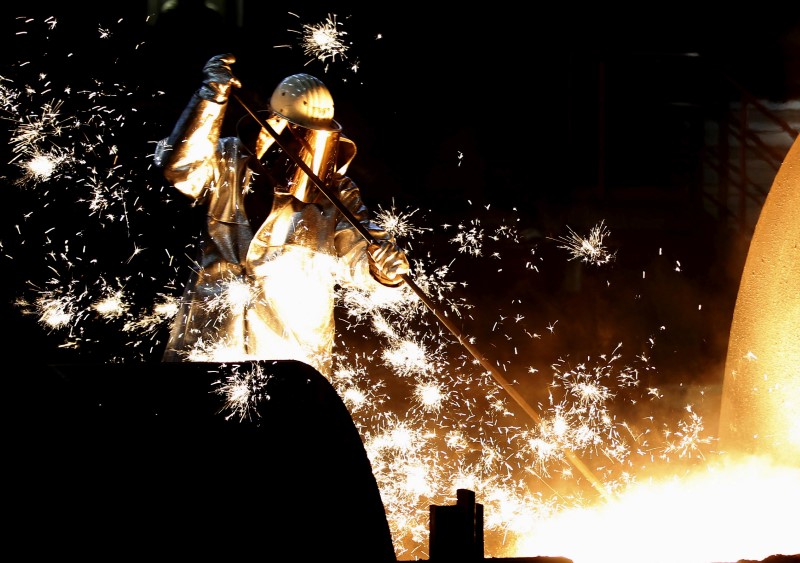By Michael Nienaber
BERLIN (Reuters) - German industrial production rose more than expected in May, data showed on Friday, boosting expectations that factories will support growth in Europe's biggest economy in the second quarter.
The surprisingly bullish figures are the latest in a batch of strong data that are likely to help Chancellor Angela Merkel and her conservatives burnish their economic credentials before a Sept. 24 federal election in which she will seek a fourth term.
Industrial output jumped by 1.2 percent on the month in May, data from the Economy Ministry showed. That was the fifth consecutive monthly increase and easily beat the consensus forecast in a Reuters poll for a 0.3 percent gain.
The upturn was driven by a surge in energy production and factories producing more capital and consumer goods.
"The trend in the industrial sector is clearly pointing upwards," the ministry said, adding that the upswing in manufacturing had broadened since the beginning of the year.
The bright picture was also mirrored in the less volatile three-month comparison: Industrial output rose by 2.1 percent from March to May, with construction jumping by 6.1 percent.
"The sector is now set to grow by 2 percent in the second quarter - we haven't seen anything like this since 2010," Bankhaus Lampe economist Alexander Krueger said.
The output data comes on the heels of bullish sentiment indicators such as the Ifo index, which showed business morale hit a record high in June.
A survey among purchasing managers released this week suggested German manufacturing growth reached its highest level in more than six years in June as orders surged.
Capital Economics analyst Jennifer McKeown said the data supported expectations that the German economy accelerated sharply in the second quarter after expanding by 0.6 percent in the first three months of the year.
"This may lead to stronger calls for policy tightening by the ECB from some quarters, but the Bank will remain wary of the lack of inflationary pressure elsewhere in the euro zone and the potential impact of any hawkish signals on financial markets," she said.

Data published on Thursday had shown strong foreign demand raised industrial orders in May, though the increase was less pronounced than expected.